The past couple of decades, especially the period after the last structural crisis broke out, have been marked by an increased interest in the topic of imperialism in general, and how to overcome it, in particular. On the one hand, it meant a rediscovery of a body of theoretical work and practical experiences of the 20th century. On the other, it also gave birth to new perspectives and research.
The Oxford Handbook of Economic Imperialism is a book that strives to bring past experiences together with new perspectives, aimed at scholars and activists alike. With the publication of this work, we had the opportunity to interview one of the editors regarding the situation in the anti-imperialist movement and the difficulties of organising.
The Introduction to The Oxford Handbook of Economic Imperialism (OHEI) mentions a number of topics being omitted due to editorial differences. Are they going to be published separately at all or have they been cancelled altogether?
Let me start by referring to an aphorism Professor Achin Vanaik offered me while I was visiting Delhi in spring 2016. This was just after the Nepalese earthquake and the disillusionment of the turns in Nepal’s socialist revolution, which brought hope, betrayal, and despair.
Pursue what is probably possible, Reject what is probably impossible.
This is not to be confused with reformism. We must not rest comfortably on our personal and organisational laurels in this unjust world. If we are to change the world, idealism is a dead end, and we must therefore continue to struggle against imperialism and capitalism. Vanaik of course, evokes Marx’s Eleventh Thesis on Feuerbach: ‘Philosophers have hitherto only interpreted the world in various ways; the point is to change it.’
We must come to understand actually existing socialist constructs grounded in a complicated reality rather than reject human history and chase after a dogmatic purity or a socialism rooted in millenarian eschatology. Marx’s contribution is drawn from a critique of Hegelian idealism and is a fundamental critique of utopian socialism which never existed in the history of humanity and never will. For some, realising that utopian socialist purity is a form of idealism in the world may lead to a return to liberal bourgeois ideals. This is the groundwork of Marxism, and a Weltanschauung eschewed by purist Trotskyists, social democrats, anarchists, doctrinaire Maoists, and sectarian purists, who oppose Third World socialist projects. At all times, they will expose the flaws in socialist states or what we can call movements towards socialism. No one is perfect, and we all have faults; human beings are subject to imperfection, especially as the imperialist capitalist centre in the West relentlessly seeks to expose possible flaws as the basis for the destruction of national liberation movements in the South and a range of Third World socialisms which do not conform to the idealist’s expectations.
The divergence over ideological purity sums up the fundamental dilemma of the OHEI. If we are profoundly opposed to any form of idealistic rigidity, we must assess anti-imperialist and socialist projects in the Third World as positive, notwithstanding their flaws. If not, we expose our own. I feel strongly that the compendium should have included all forms of resistance to imperialism, irrespective of their shortcomings and defects. Undeniably, we must learn from past and present mistakes, but I view a range of anti-imperialist projects as part of a trajectory, from the Soviet Union (1917–56) to the People’s Republic of China (1949–72), followed by an interregnum. The New Economic Policy in the Soviet Union in 1921 was a necessary expedient for the fledgling socialist project to recover from the Civil War and foreign intervention. The recent shifts taking place there seem to open up a new model of Third World socialism. Western Marxists and absolutists reject Third World revolutions, and we must be vigilant to counter their imperialist agenda. As Losurdo writes in Western Marxism. How it Was Born, How it Died, and How it Can Rise Again:
Western Marxism was afflicted by a sort of myopia: it didn’t realise that the wind of the revolution was blowing from Russia to China and the Third World, joining with the national revolutions against Western imperialism There was a time when Marxism was an obligatory point of reference for any philosophical and political debate: those years saw the biggest victories for ‘Western Marxism’, which presented itself in stark contrast to its Eastern counterpart, accused of being a state ideology that propped up ‘Socialist’ regimes in Eastern Europe and Asia.
From the 1970s to the present, scholars, students, and activists have been directed toward Trotskyism, even in the Third World, and opponents classified as apostates. History cannot necessarily be understood through a teleological lens which Western Marxism prescribes, even if capitalism seems to be rooted in a continuous effort to increase surplus value and profits. The dialectic is to hold on to pessimism and optimism simultaneously. Thus, I always hold out hope for a better world and will struggle for one, in view of Vanaik’s aphorism, and the enormous challenges that we have before us. Losurdo shows in Stalin: The History and Critique of a Black Legend, that we need to have the capacity to see all sides of socialist projects and actors, not just the bleak and dark history, but also the inspiration which brings positive change to the most oppressed.
I would have liked the project to examine the crucial contradictions in the anti-imperialist project, rather than wallow in the faults of Third World states. In my view, pessimism is a form of imperialism, as it plays into the dominant First World capitalist imperialist line.
The OHEI is a useful resource, even if I part from several chapters. This is because my co-editor, Zak Cope, and I view the world quite differently. My remit is not to criticise Third World efforts in opposition to Western imperialism for, while recognising that there are serious faults which require correction, I believe that rather than destroy flawed models we should recognise their achievements. Surely, we can continuously criticise and find fault in Southern socialist projects, but the strict and doctrinaire view of identifying imperfections contributed to the absence of important chapters on vital anti-imperialist struggles and projects.
The OHEI was conceived by Cope and me in July 2020 as an essential means to advance understanding of political economy of imperialism, through compelling conceptual and theoretical analysis and case studies in all regions of the world. Concomitantly, I considered a handbook on economic imperialism of vital importance in understanding the deleterious consequences of imperialism and capitalism on the Third World. It would also elucidate the colonial dominance of rich countries and how this contributes to the exploitation and oppression of people in the South. In particular, I sought to demonstrate Arghiri Emmanuel’s Unequal Exchange as central to economic imperialism. I envisioned the OHEI as a heterodox project for students, scholars, and activists seeking to understand the theoretical perspectives, thematic developments, and regional consequences in the South. But to my regret, the book did not achieve this goal, as the chapters are written for academics.
I cannot speak for Cope’s perspective, but it was uncompromising and appeared inflexible to the realities of the real world. Cope is undoubtedly among the leading contemporary contributors to the revitalization of imperialism, but we parted company on several issues, as I sought a flexible and less rigid approach to social and political theory of imperialism. Cope’s major work, “Divided World, Divided Class: Global Political Economy and the Stratification of Labour Under Capitalism,” is a contribution to the regeneration of imperialism research, exposing the privileges First World people enjoy because of five centuries of pillage in the Third World. His work was also a necessary exposition of the development of the labour aristocracy in the imperialist world, so much so, that it convincingly demonstrates to scholars, students, and activists how the First World working classes are beneficiaries of the imperialist exploitation of the Third World and do not share a common class perspective. Once again, in examining texts seeking to expose the divided world, our focus should be on their contributions to advancing struggles in the Global South, rather than their epistemological flaws. My focus has been on the unfolding labour and anti-imperialist conflict in the Third World, and I therefore found Cope’s second book, “The Wealth of (some) Nations,” to have significant purchase in advancing scholarship about imperialism.
My view is that Western and Northern imperialism has been and remains the primary destructive force against the construction of international solidarity, or as Torkil Lauesen would put it, the ‘principal contradiction’, which exploits and oppresses the people of the Third World. The world is not static, and episodic deviations occur to this calculus, for instance, the dissolution of the Soviet Union and the rise of the People’s Republic of China. My focus is rooted in understanding Western and Northern imperialism and working-class resistance in China, India, Malaysia, the Philippines, South Africa, Brazil, Central America, and elsewhere in the Global South. I may not share perspective with comrades, but this is no reason for not remaining part of our common struggle.
The USA and Western Europe is the centre of capitalist imperialism, and, unlike others, I am not convinced it is in decline, especially during times of military conflict. But counterhegemonic forces are certainly emergent in the Third World, especially China, which do not operate in unalloyed purity but are filled with contradictions. We must not absolve the role of the comprador capitalist classes in the global South or Southern capitalists but recognise that the principal contradiction is that they are primarily, but not wholly, appendages of Western capitalism. The USA and the West have installed and formed military alliances with dictators such as Hussein, Marcos, Mobutu, Noriega, Pahlavi, Pinochet, Rhee, Suharto, South African Apartheid, and beyond. Of course, there are no ideal types, and the Cold War created contradictions, as has the New Cold War that has emerged with the rise of China and greater resistance to Western economic, military, political and cultural hegemony. In addition, we cannot deny that the South has internal dialectical forces which have contributed to upheaval; such as the rise of national bourgeoisies and comprador classes as capitalism has expanded throughout the planet. India, for example, is not a comprador state but is ensnared by the Western capitalist system, which predominantly dictates its politics and economy. At times, the Soviet Union and China have formed alliances on the basis of Cold War and other rivalries which were imperfect. We could condemn socialist organisations and states in many arenas, but that is not my primary focus. I do not judge anti-imperialist socialist projects in the periphery and semi-periphery as equivalent to the Western imperialist project. For instance, I do not share Patrick Bond’s obsession with the growing economic role of China and India being even more pernicious than Western imperialism, condemning them to failure before they have a chance to emerge. We must not sentence socialist projects to death prematurely as they are part of a longer trajectory of class forces.
I do not believe every source I read, not to say that Cope did. I believe we must collect as much information as possible to come to a determination, and even then, we must treat sources, especially if they are generated by the Western media and intelligence, with great care. Frances Stoner Saunders, in “Who Paid the Piper? The CIA and the Cultural Cold War,” demonstrates that Western counterintelligence has falsified much of the evidence in the post-Second World War era. This means that we should not underestimate the tremendous economic, cultural, and social power of Western media in obscuring the historical truths advanced by their opponents. Far too many imperialists and capitalists condemn peripheral and semi-peripheral countries for their activities in the Third World, rather than trying to focus on their accomplishments. When Third World socialist states oppose imperialism, they encounter major resistance and must at times change tactics and strategy. As Mao Zedong taught us, at times we must ally with unprincipled opponents to further the struggle in the long run.
Further, it is incumbent on anti-imperialists to engage in intellectual and direct praxis. My role is not to condemn the errors of anti-imperialist projects, despite their contradictions and imperfections. Of course, we must reject imperialist social chauvinism in all its forms, including the Global South. But if we are to effectively engage in the struggle against capitalist imperialism, our role is to condemn and denounce our own capitalist imperialists. Trotskyists and other sectarians are more intent on condemning the left than the right in pursuit of some fanciful idealistic notion that socialism or communism will permanently take root. Advancing class conflict is a teleological process but has many contradictions. Our sphere should underscore the crimes of Western imperialists.
Socialist anti-imperialists must be firmly rooted in the history and contradictions of material development. However, as anti-imperialists it is essential to understand the underlying causes of unintended outcomes and the requirement to support imperfect projects against Western imperialism. We must also give socialist experiments time to germinate and to consolidate power before passing judgment on their efficacy. After all, too many self-proclaimed anti-imperialists in the West are more intent on disparaging these Southern socialist projects than their own wretched governments.
Of course, prejudice is present in every society, but we must understand capitalist imperialism as the primary source of inequality, poverty, and violence on this planet. With the possible exception of indigenous people, every society foments bigotry and hate. Given this, why should anti-imperialists point out the flaws in political projects which oppose the imperialist system? It is remarkable that self-proclaimed socialists, anti-imperialists, and anti-fascists would focus on the defects and mistakes of socialist and anti-imperialist projects without giving them a chance to consolidate power, starting with the Soviet Union and China, rather than the US and Western European capitalists, who control the vast majority of wealth in the world and are intent on toppling Third World governments which oppose Western hegemony, especially Western economic dominance. Of course, all governments and social orders will defend their societies yet develop imperfect societies.
Our role as socialist anti-imperialists not to condemn Western-aided partisans fighting against jihadists in Syria, for example; nor should the anti-imperialist denounce Iran and other states which maintain repressive political systems, not all that different from the West. In fact, it is the Western forces which seek to prop up reactionary leaders in Third World countries, to weaken efforts to build socialism, democracy, and economic improvement. I add that we must oppose the US and Western neoliberal project and militarism, which has expanded NATO to Russia’s borders as a means to advance full-spectrum dominance. Without doubt, revanchist and fascist ideological movements have been unleashed throughout the world, but we must decide on the causes of their development and the greater threat to the Third World.
Why do Trotskyists, sectarian leftists, social democrats, and anarchists prefer to attack anti-imperialist projects (even with little or no evidence) rather than the primary sources of exploitation and oppression? So, I do not seek to have a chapter on the Chinese oppression of the Uyghurs (a US project), nor should we have any interest in critiquing the mistakes of the Venezuelan Bolivarian Republic or the Indigenous forces in Bolivia, even if they do not measure up to our ideals. What Trotskyites, social democrats, anarchists, and other sectarians do not take into account is that no country has achieved socialism, but some are on a course towards socialism. This is a long and arduous project. In addition, the USA and Western Europe are the first to find fault with these projects, and they have willing partners among Trotskyists, anarchists, and misguided Maoists. Notwithstanding their contributions to understanding imperialism, we must consider opponents of socialist projects as collaborators. In addition, recently self-described anti-fascists are sentries for the capitalist imperialist forces. I refer to those who charge anyone who evaluates the complexities of societies rather than naively focus only on their flaws. So, in sum, we should wholly reject this tendency as collaborators with fascists and oppressors. Some even advocate for the Israelis as a liberal state open to all. This is sheer lunacy.
Thus, we must choose between scientific socialism based on historical and material reality and science fiction that is steeped in hatred.
In fact, one of the topics I wanted to pursue in the OHEI was migration as economic imperialism, since my research has focused on labour migration and the rise of nationalism and attendant populism and xenophobia. Due to the Cold War with my co-editor, we could not correspond in a serious manner. As a consequence, thematic areas of economic imperialism were not covered, and we had uneven regional coverage. I must confess that I rejected some proposals, too. But the chapter I reject more than any other is the first in the collection, which is nothing more than a harangue that serves no purpose but to discredit centuries of struggle against imperialism. What does that serve? Now more than ever, it is essential to develop a new project on economic imperialism that is generative and will lead to a wide understanding of imperialism, theoretically, thematically, and regionally.
Imperialism is a European and North American project, and forms of imperialism have certainly emerged in other regions of the world such as the Ottoman, Austro-Hungarian, Russian, and Japanese empires. Samir Amin found the penultimate form of capitalist imperialism was generated in Western Europe, following the fall of the Roman Empire. However, as a historical materialist who recognises the significance of Marxism, Leninism, and Maoism, I have no utopian illusions about historical and scientific change; and, as Marxist materialists, we must share Max Weber’s position that there are no ideal types in the world, and that includes, state formation, capitalism, imperialism, and socialism. All of humanity is capable of betrayal. I think this is fundamentally a major fault line among many anti-imperialists. I do not treat world history in absolute terms, but as comprising dominant forces which will change through political and economic struggle. For this reason, I admire György Lukács, who was his own best critic, rejecting many if not most of his own works as he came to understand more about the nature of capitalism, socialism, and imperialism. In many ways, I have applied this self-criticism to my own work before reading Lukács. In this way, I am not sanguine about the future of a counter-hegemonic movement in the Global South, but that should not stop us from engaging in struggle ourselves.
Imperialism too is not an ideal type and has a historical trajectory of change and transformation. However, the dominant force in the last 500 years, and especially since 1750, has been the subjugation of the world by Western imperialism. Once again, I do not see absolutes in the world but dominant forces, human fragility, and vulnerability to historical change.
I emphatically disagree with the derisory characterisation of Marx and Lenin in Cope’s chapter. He cherry-picks unflattering quotes from leading socialist scholars and revolutionaries who were also imperfect, but whose crucial contribution to the anti-capitalist and anti-imperialist project (past, present, and future) has been immense. I recall stating over and again that the world is complex, and received ridicule as a response, without context or explanation. At the very end of the project, I felt that I could not the book my imprimatur. I did not contest my co-editor’s positions. This reflects a pattern which I began to see when engaging others with whom my co-author collaborated. There was always a superlative comrade with whom he aligned. Yet, on many occasions, each became a personal nemesis. Many of us are friends and recognise that we are all struggling against imperialism and capitalism. As humans, we are flawed and imperfect and must reflect on our own shortcomings and develop the capacity to question our own ideas. Anti-imperialists understand that most political-economic projects have a beginning and will inevitably come to an end. However, today, as most of humanity is at risk due to capitalism and imperialism, we must work together to support socialist projects originating in the Global South.
On a more personal level, apart from the “Encyclopedia of Imperialism and Anti-Imperialism” and this particular work, you have authored a number of articles related to imperialism and anti-imperialism. It would be fair to assume that this amount of labour over time has produced a network of like-minded people. Are there any lessons learned that you could share about how the anti-imperialist movement is developing and progressing, what are the tendencies, and are we moving towards unity or disunity?
Yes, absolutely. I have conducted research in Africa, Asia, and Latin America and have made comrades in each region, especially among workers and activists. I have found some intellectuals who call themselves Marxists in the South and many in the West to lack an understanding of the generative forms of imperialism. Notwithstanding their professed beliefs, they follow the lead of Western imperialism rather than the South. Marxism and anarchism are just a cover to gain cachet and a following. Those who have the most profound understanding of imperialism are ordinary people who suffer through lives of poverty, misery, and destitution. Of course, there are many movements throughout the world who are engaged in significant struggles against imperialists in communities and states of the Global South. The anti-imperialist movement is a constantly evolving movement and beyond doubt is growing. This is inspiring, as most of these movements are among the young who have fundamentally rejected the Western-dominated intellectual hoax of economic growth and development and apply a more critical analysis. Most opposition to Western imperialism and capitalism in the South is discontinuous, but movements are absolutely on the upturn among the masses, especially as the South has become the production centre of the world capitalist system. Anti-imperialism is growing throughout the world and opposing capitalist systems opposed by the West deeply rooted in economic extraction.
I have found the networks of anti-imperialists to be expanding, but we must help build bridges across the world. Concomitantly, we also have imperialist networks growing more vividly, especially in the West. Most Western, non-electoral leftist parties are bearers of an imperialist ideology which is easily exposed. I prefer not to call each of them out, but they are engrained in a First World bias, as they see themselves at the centre of the global struggle against imperialism, capitalism, and racism. They want to lead Southern movements but are arrogantly advancing their own agenda. Make no mistake, these groups, even if they have a few devotees around the world, have absolutely no traction in the South. They are a corrosive and dangerous force which we must oppose and fully reject, as they view states in the South as imperialists. Naturally, most but not all Trotskyists follow this tradition, embracing uneven and combined development, which necessitates that revolutions will occur in the advanced capitalist states of the West. In the last 100 years, no revolution has occurred in the West and the North. However, in the last decade, a number of new organisations have embraced anti-imperialism and anti-capitalism.
Building a bit on the previous question, it is generally considered that the golden age of (anti-)imperialist theory was in the 1970s. What do you think led to its disappearance? Was it due to theoretical problems or the systemic changes that made anti-imperialism irrelevant?
We are finding a renewed interest in anti-imperialism among scholars, especially those in the South. Arghiri Emmanuel and Samir Amin are now considered iconic theorists whose work is the launching point for understanding imperialism. One can certainly cite numerous anti-imperialist scholars whose work is gaining widespread recognition.
If we fast-forward to the contemporary era, what conditions are required for new, innovative trends and theories to appear? In fact, do we need innovation at all, or do we already have all the ‘tools’ we need?
Today there is a burning need for organisation. Neoliberal capitalism has advanced individualism on a world scale through its Western agencies, the IMF, World Bank, and even United Nations. The anti-imperialist left does not have organisational power as it has been crushed by the hegemonic free market in every facet of life. In particular, the Global South requires strong and resilient socialist anti-imperialist organisations willing to take on the dominance of the free market projected by the US and its allies. We must also struggle against rapacious forms of nationalism which divide the Third World rather than unify opposition to neoliberal capitalism.
In relation to the practice, do you think the academic community is increasingly divorced from the anti-imperialist struggle? How would you bridge the gap between the need for theoretical and analytical knowledge of the activists and the intellectual work disengaged from the difficulties of building an effective movement?
I see a renaissance taking place in the academic community as evinced by the growth of scholarship focusing on the divide between the Global North and Global South. Jason Hickel’s work shows that ecological destruction is rooted in consumption in the North, and he is advocating de-growth, a movement which is expanding in the West. In China, we see the revival of Marxist institutes, which surely are embracing anti-imperialism as central to the struggle. Of course, Western leftists remain trapped in their view that no differences separate the global working classes. Rather than a force for socialist change, Western Marxists are a drag on any possibility of changing the global calculus of unequal exchange and unequal development.
You have studied trade unions in the Global South. Being heavily influenced by the research of Global Commodity Chains within the radical tradition of World-Systems Analysis, we consider transnational organising to be one of the keys to effective anti-imperialist resistance. In your experience, have you seen the development of cooperation within/along commodity chains transitionally? Is it realistic to expect that this trend will catch on in the future?
Transnational organising is essential to building an international working-class movement but it is impossible without recognition of the global divide and unequal exchange. The Western working class must understand that they are beneficiaries of centuries of European and Northern imperialism. In the present era, economic imperialism is expanding dramatically as the Global South is the centre of global production and supply chains necessary for international capitalists to advance surplus value. I do not see commodity chains as advancing international solidarity and cooperation. In fact, they are used to divide the working class, as internal and international migrant workers with fewer rights are indispensable to the World System of production and distribution. Global commodity chains lead to divisions, and socialists and anti-imperialists must struggle against their expansion and growth. I do see local struggles within commodity chains to have potential to contribute to class movements in nation states. However, we must always consider the problem of organisation. The working class has no effective organisation today. Indeed, anti-imperialists must reject the trend among some leftists to regard small organisations as the wave of the future. Class struggles occur in workplaces, communities, and within the process of change. To challenge the hegemony of Western capital, working-class organisation is indispensable or it will be overtaken by nationalists and religious zealots and be coopted by the West.
I must return to the significance of the historical record: successful revolutions have only occurred in large multinational states recognising their subjugation by Western imperialism rather than in small countries which can be crushed by the imperialist core. We need to expand the sphere of socialism as a possibility on a geographic basis.

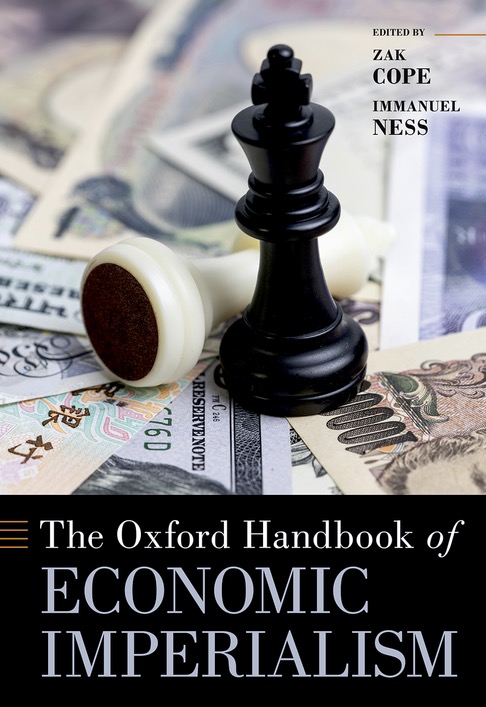


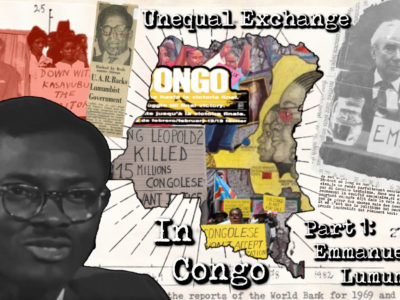


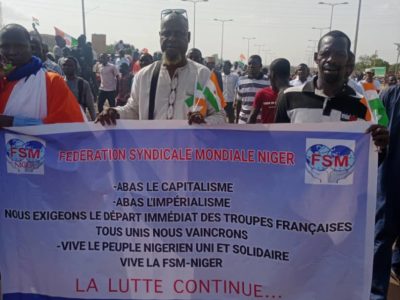
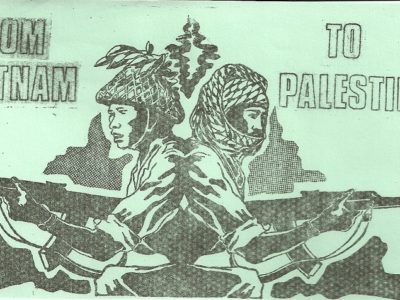

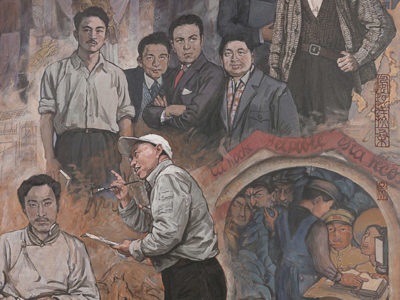
This is an important criticism to be made about the state of the contemporary “anti-imperialist” left in the imperial core and its obsession with attacking all enemies of NATO. Thank you.
One point is confusing: why do you only refer to the Islamic Republic of Iran as having a “repressive political systems, not all that different from the West”? This seems to also be the same trap as you have described in the rest of the piece, focusing on the negatives– negatives that are in this case also CIA manufactured lies. The Islamic Revolution is one of the most successful anti-imperialist movements of contemporary history and the Axis of Resistance is no less important than BRICS in the global anti-imperialist struggle happening today. This may seem small but it is a pattern that runs through all the contemporary anglophone literature on imperialism.
Eric Hobsbawm considered the Iranian Revolution one of the four major revolutions in world history: France, Russia, China, and Iran. The revolution improved people’s standard of living and the sanctions against Iran should end.